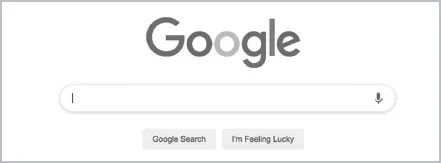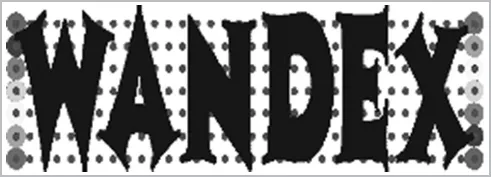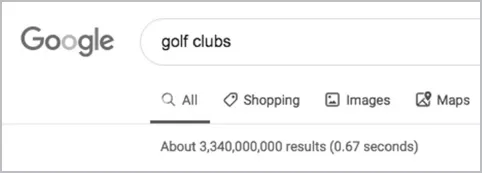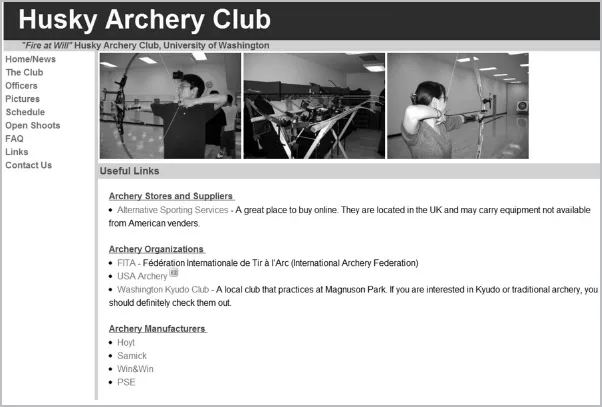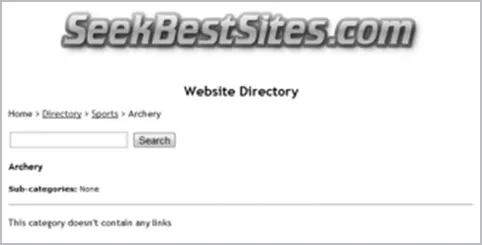![]()
A Brief Introduction to Search, Links, and Link Building
“A link is a connection from one web resource to another.” This quote from the World Wide Web Consortium (W3C) makes web links sound so simple. And in some ways they are, or at least they were intended to be. But the web as a whole is huge and complex, made up of trillions of individual pages, files, and other content, while at its core the web is simple and made up of only two things: content and links.
Lots of links.
More links than any one person or search engine can count. Those links between pages and sites are the primary way web users navigate from one place to another online. A simple mouse click takes you from one site to another site, or from a search result to a specific page, or to a video, or a picture, or a song.
If you don’t have a website, you probably haven’t given much thought to links. But if you do have a website, be it a small blog or a huge corporate presence, then links take on a whole new meaning. In fact, links on the web will help determine the level of success your site will have on the web. In addition to the “humans” clicking on those links, every major “bot” (search engine) uses some form of link analysis when determining search results.
The purpose of this book is to simplify the complex online world of web links and help website owners create and execute link-building campaigns that attract links, increase traffic, and improve search rank.
A BRIEF HISTORY OF LINKS AND SEARCH ENGINES
As much as we take the web for granted today, it was only 28 years ago that the very first website was created. No other websites linked to it because there were no other websites.
And there were no search engines to use to find it.
The world’s first website and web server, http://Info.cern.ch, launched on August 6, 1991, by the web’s creator, Tim Berners-Lee, an engineer, computer scientist, and MIT professor. View the first website in Figure 1–1.
FIGURE 1–1. Info.cern.ch: The World’s First-Ever Website
The site still exists today, and there are more than a half-million other websites that now link to it. A half-million links. That sounds like a lot of links, doesn’t it?
Search engines like Google also exist today (see Figure 1–2 on, page 3). Hundreds of millions of sites link to Google, and billions of searches are performed there every day. Having your site appear high in a search engine’s natural search results can be very profitable for most businesses. However, very few people outside of Google and Bing really understand how search engines compile results, and even fewer understand how to affect those results (i.e., make a site rank higher).
FIGURE 1–2. Google’s Search Box
There are many factors involved, and some of the most important are links from other sites to yours. The web of today is comprised of trillions of links between sites. Somehow Google and other search engines analyze these links and draw conclusions about your site based on the links that point to it.
Like a fingerprint, your links uniquely tell Google about your site. Who links to you and how they link to you is now one of the single most important factors that all search engines rely on when ranking results.
It didn’t start out that way. The web’s first search engine, called Wandex (see Figure 1–3), and the engines that followed (most of which are gone now), didn’t analyze links at all. They only analyzed your website, the assumption being that your website would be the most accurate way to determine what your website was about.
As logical as that sounds, it didn’t take long for web marketers to figure out how search engines worked and could be manipulated, and the game was on.
As the years went by, search results became less and less accurate, with those most adept at manipulating the results being the big winners, while the searcher often ended up on a page that was not very helpful.
FIGURE 1–3. The Web’s First Search Engine, Called Wandex
ENTER GOOGLE …
Then Google came along with the idea of using the very fabric of the web itself, links between sites, as a method for determining which web pages were most relevant for any given search.
In other words, the web would collectively determine where a site should rank, based on which sites attracted links. Think of a link as a vote. And while on the web some votes matter more than others and some can actually hurt your search rank, it’s the best analogy to use to introduce you to the concept of link building.
Put simply, you can directly impact your search rankings if you understand how and why links matter and what you have to do in order to earn them. It isn’t about quantity; it’s about quality. A few links from the right places are better than a ton of links from sites with no value.
Link building is both art and science. There are many ways to build links. There’s what some people call the “white hat” approach, where you have a website devoted to a particular topic, and you look for and contact people who care about that topic. You let them know about your site in hopes that they’ll link to your site from their site. This is a slow and methodical process, and it can produce amazing results if done correctly.
But there are other approaches, like sending a few million email messages to a list of people you don’t know, with links in your email telling them about your site. This is commonly referred to as “spam.”
The approach you choose for building links should be based on the content of your site, not spam. Automated link building does not result in your site earning quality links that will help your search rank.
For example, if you have an ecommerce site with generic products that can be purchased anywhere, why would anybody link to that site? There are 500 other sites where someone could buy the same product. For instance, take a look at the results for a search on “golf clubs” in Figure 1–4.
FIGURE 1–4. 3.3 Billion Results for a Google Search on the Phrase “Golf Clubs”
Why would another site link to your site instead of any of those other 500? The truth is, in this scenario, you’ll have a hard time building links without paying for them. On the other hand, the more freely you create and provide unique content about subjects that you have some passion for, the more freely you will find your site able to attract and earn links. It’s not as complicated as you think, really. My colleagues have often heard me say, “Every site has its own linking potential depending on its subject matter, depth of content, and intended audience.”
What we mean by this is the best target sites for your site to pursue and earn links from are going to be different from those for another site. Here’s a great example: If you have a site that sells archery equipment and that also has excellent archery-related content, there’s a target site you would want to have a link from (see Figure 1–5). Prepare to be surprised.
Why is that site so valuable? Think of that site’s intent, purpose, and author credibility. It’s legitimate and trustworthy, and you can’t get a link from this site just because you want one. You have to earn it. You have to have archery-related content of merit. You have to find the owner/author of the site, reach out to them in the proper way, and recognize that not every site will be given a link, which is one additional reason the engines trust that site. Content of merit earns these types of links.
FIGURE 1–5. A Valuable Link for an Archery Products Online Retailer
FIGURE 1–6. Sometimes Link Building is Knowing When NOT to Get the Link
Now take a look at the site in Figure 1–6. Which of the two sites do you feel was created by a group with a singular interest and passion for archery? The answer is obvious when you look at a pair of sites about a very specific topic, like those featured in Figures 1–5 and 1–6, on pages 5 and 6, respectively. Unfortunately, the overwhelming majority of SEO and link-building services you can buy today are not going to help you, could hurt you (with penalties), and at best will be ignored as if they do not exist. You will have spent money for nothing.
While outright penalties and banning from the engines are rare and can be corrected over time, this is a slippery slope to be standing on while building links. It’s also true that you often cannot control who links to you, so the engines must be cautious about levying a penalty until they have enough evidence. But here’s a way you might want to think about it. Google employs hundreds of computer scientists and librarians, all of whom are a lot smarter than most of us ar...



